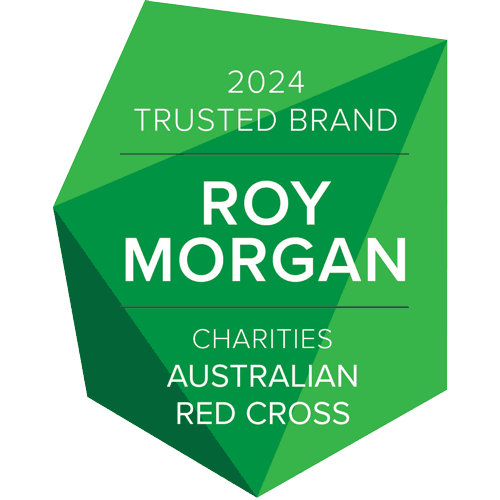Australian Red Cross backs ground-breaking technology solving humanitarian challenges
28 April 2023

From a first-of-its-kind chatbot tackling racism to the ‘digital humans’ increasing access to sign language during emergencies, four cutting-edge projects have been announced by the Humanitech Lab innovation program.
The Australian Red Cross initiative is supported by founding partner Telstra Foundation, and is providing four organisations with up to $100,000 in grant funding, capacity building, and support to pilot a project with communities across Australia.
Humanitech Innovation Program Manager Adelide Mutinda said these solutions represent some of the most cutting-edge applications of technology to address challenging humanitarian issues.
“We’re thrilled to be able to fast-track the work of these start-ups through Humanitech,” said Ms Mutinda.
“What’s especially significant is that these projects are piloted alongside Australian communities - allowing us to deepen our understanding of what it takes to develop inclusive and ethical technology, and to share this knowledge with others.”
First Nations-led start-up HoldAccess is using the funding to develop its digital platform, WUNA, to empower First Nations people and digitally excluded people to hold, access, and share their digital identity. In partnership with the Red Cross Port Lincoln Youth Development Hub, it will pilot with job seekers in South Australia.
With one in six Australians affected by hearing loss, much-needed inclusivity and disability-focused start-up Kara Technologies has received funding to increase access to sign language in emergencies using "digital human" avatars.
Kara Tech will pilot alongside Deaf communities, Red Cross’ Emergency Services team, and emergency management agencies in NSW to provide fast and on-demand Auslan during emergencies.
One of the four organisations, Maya Cares, has created a chatbot to support Aboriginal and Torres Strait Islander, Black, and Women of Colour who have experienced racism. Through Humanitech, the Maya Cares pilot project will enable users to access culturally appropriate mental health and wellbeing resources and services.
Also, among the cutting-edge solutions is AirSeed, a company with a target to plant 100 million trees a year by using drone-planting technology to regenerate land across Australia. AirSeed is piloting with flood-affected communities in Lismore, NSW with support from Australian Red Cross’ Emergency Services team.
Telstra Foundation CEO Jackie Coates, said the program offers a genuine opportunity for ambitious startups to develop meaningful relationships with the community.
“These bold initiatives are made possible through the power of collaboration - Humanitech offers others a model to develop and use technology by working alongside the people who are impacted by it creating impact for people and the planet,” said Ms Coates.
The teams will spend six months moving through the program’s pilot stage, which features learning workshops led by subject matter experts, access to Red Cross expertise and collaboration, industry contacts, mentorship, and a network of peers.
On 17 May 2023, the third annual Humanitech Summit will be held in Melbourne, where attendees will hear from speakers who are pioneering change in their fields.
The summit will offer the opportunity for leading thinkers across sectors to share ideas and spark new ways of working with technology to benefit people and society.
More information on the Humanitech Lab and each of these organisations’ projects can be found here.

For media queries please contact media@redcross.org.au or call 1800 733 443.
